Seville’s Top Attraction: The Real Alcazar
The Real Alcazar is one of the Top 3 Moorish sites in Spain (the other 2 are the Mezquita in Cordoba and the Alhambra in Granada). It is a UNESCO World Heritage site as well as the residence of the Spanish Royal family (the Real Alcazar is the oldest royal palace in Europe still in use).
With incredible Islamic architecture, exquisite tilework, and lavish and extensive gardens, it is one of Spain’s “must-see” sights.
All about the Real Alcazar in this post, including on how to see it for FREE.
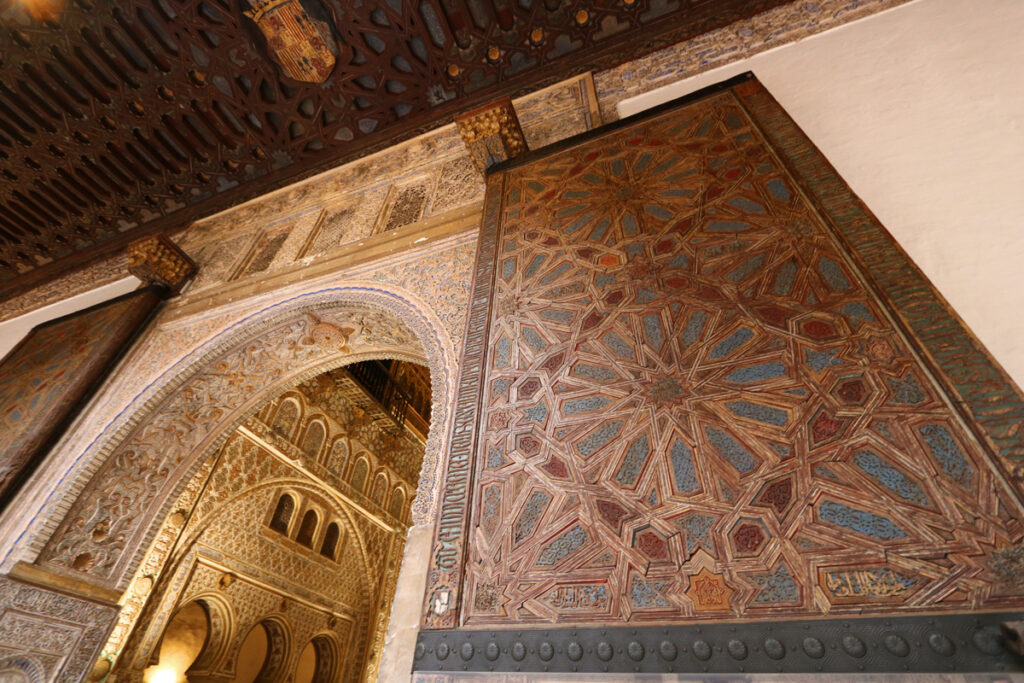
The History of the Real Alcazar
The Alcazar (the word meaning “fortress palace”) was originally built as a Moorish fort in the year 712 by the first caliph (Muslim ruler) of Andalusia. The fort was demolished and turned into an extensive series of palaces in the 11th and 12th century when Seville became the capital of Andalusia. There were a total of twelve palaces which would be the main residences of the caliphs. That was the case until the capture of Seville by Christian forces in 1248.
The Christian kings, much like the Moors, made the Alcazar their royal residence but basically changed everything, so much so that few remains of the Islamic-era structure remains. In the 1300’s, Pedro I (called Peter “the Cruel” although some called him Peter “the Just”) rebuilt the complex in Mudejar style. It is thought that the construction was helped by Arab craftsmen from Granada (Granada was still ruled by the Nasrid dynasty at the time and its sultan, Muhammad V, was an ally of Pedro I).
The complex today is a mix of Islamic, Renaissance, Gothic, and Baroque elements. Those elements make the Alcazar the finest example of “Mudejar” architecture in the world (Mudéjar is an architectural style built under Christian rule that commingles both Moorish and Spanish Christian elements).
Visiting the Real Alcazar…getting your ticket
The entrance to the Alcazar is at the Lion’s Gate (Puerta del Leon) which is right across from the Cathedral.
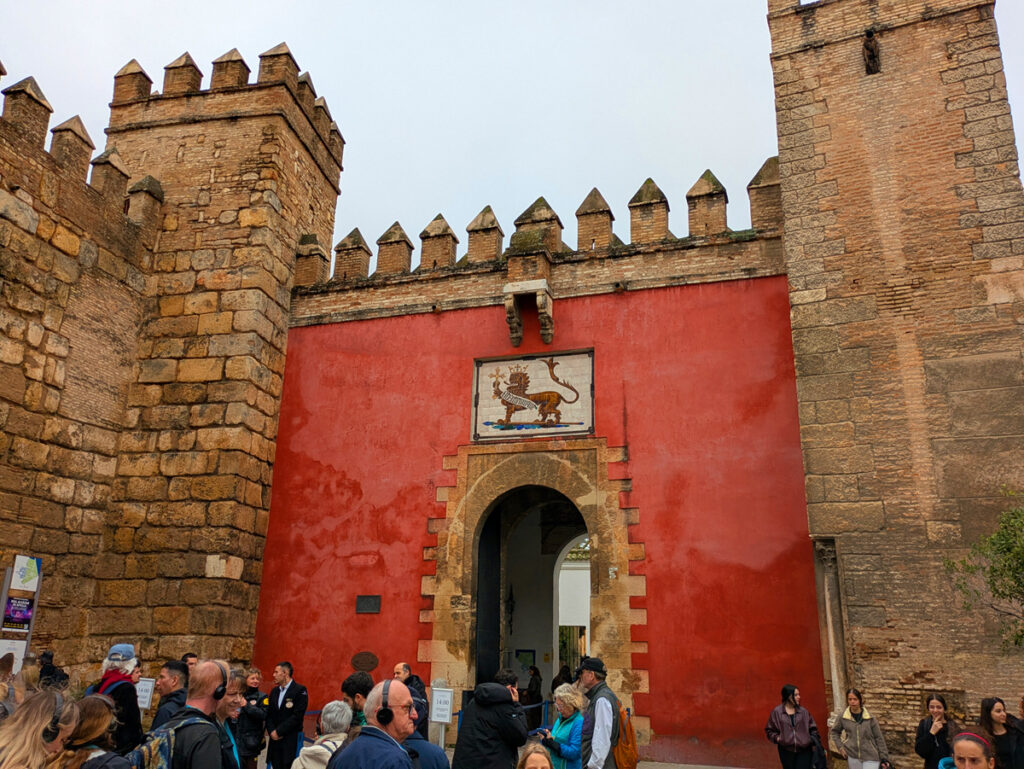
The Lion’s Gate and the walls adjoining it were originally built by the Moors in the 12th century and led to the garrison yard of the original Al-Muwarak palace. But the gate is named for the 19th century tile-work inlaid above the gate, a crowned lion holding a cross in its claws and bearing a Gothic script.
Buy your tickets online (instructions at the bottom of the post). Then show up at the Lion’s Gate to enter the Real Alcazar at your allotted time..
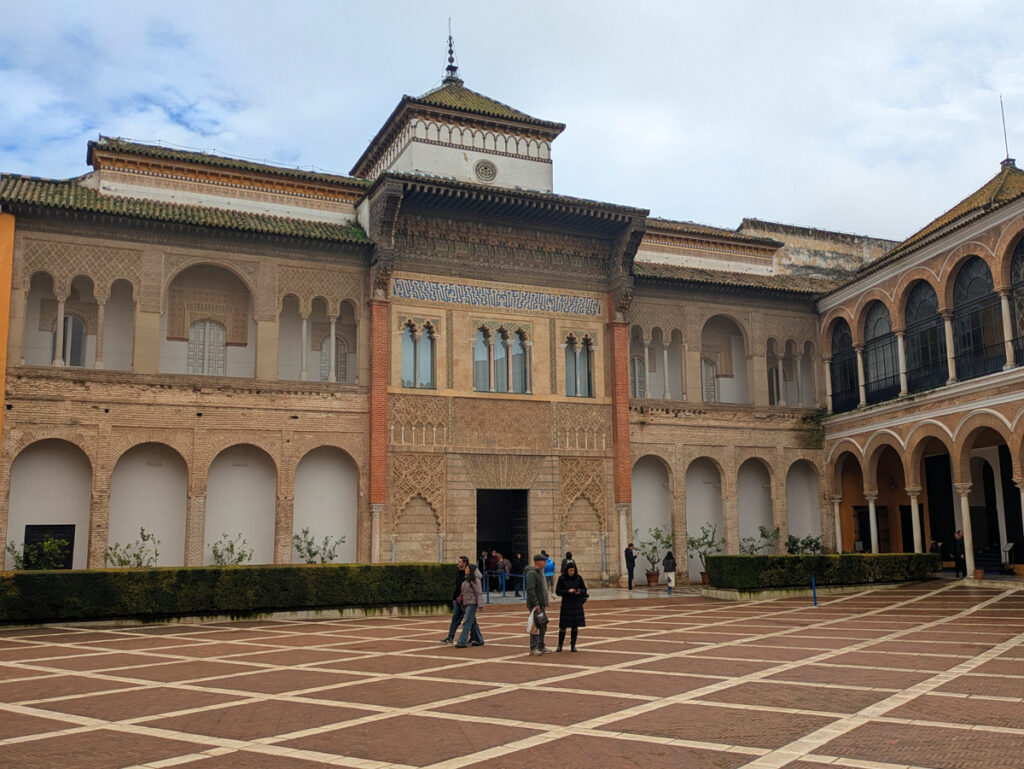
Highlights of the Real Alcazar
The Maiden’s Courtyard (Patio de las Doncellas)
The name “The Courtyard of the Maidens” refers to the legend that the Moors demanded 100 virgins every year as tribute from Christian kingdoms in Iberia.
You’ll see a large, rectangular reflecting pool with sunken gardens on either side. The detail – the arches and tiles – of the courtyard and the reception rooms adjoining the courtyard are exquisite.
The Courtyard was actually built in the 13th Century when Seville was back under Christian rule. It is an architectural monument built in the memory of those 100 virgins which, though fictional, symbolized the psyche of the Christians towards the Moors at the time.
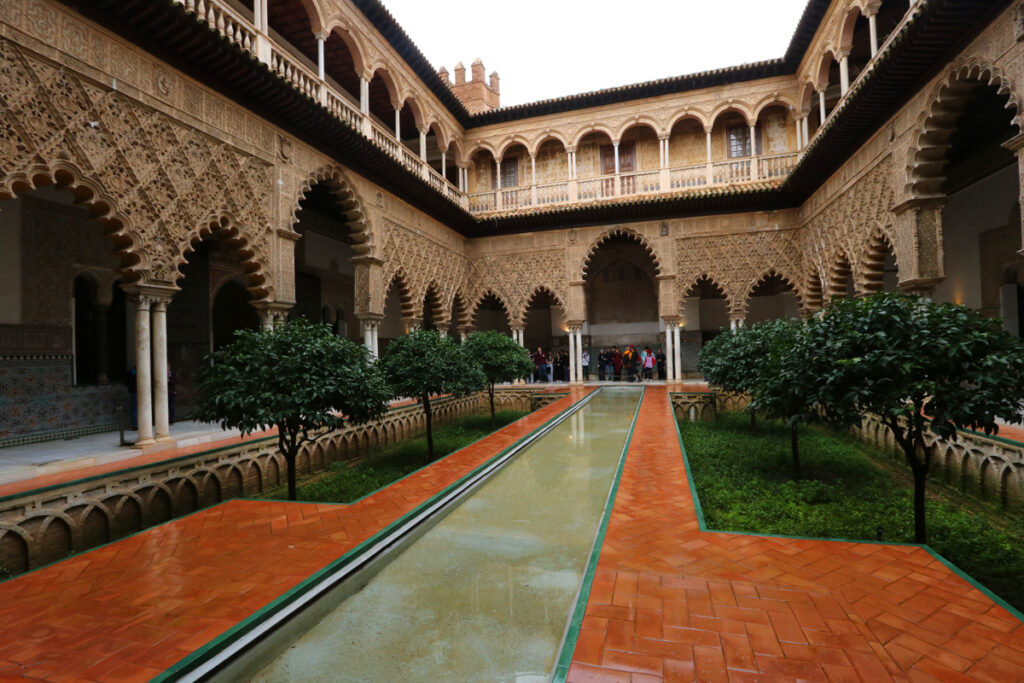
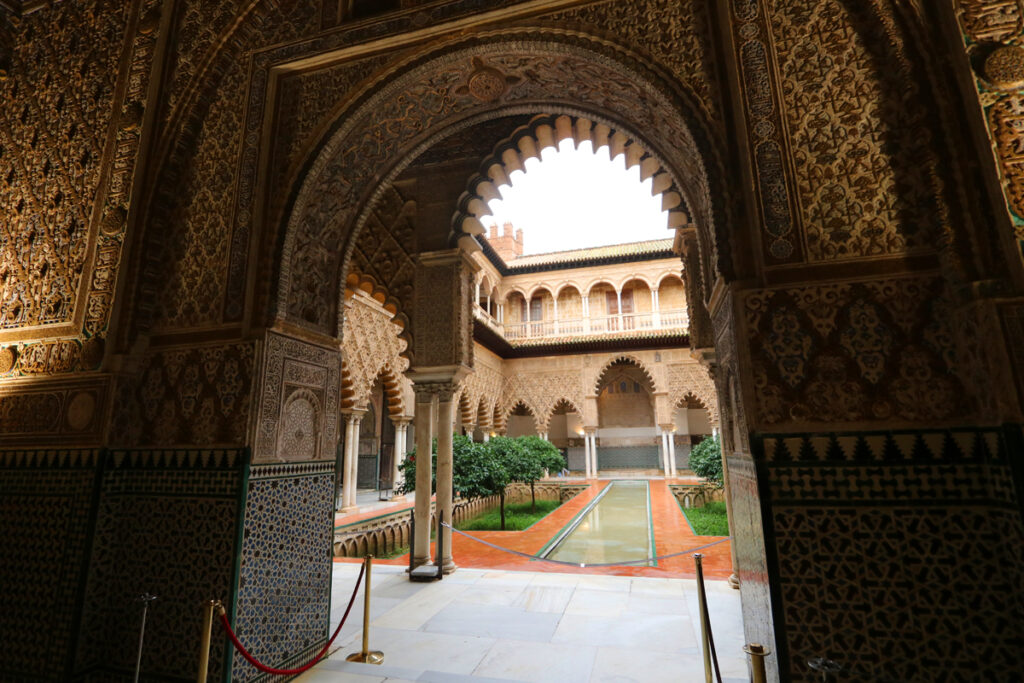
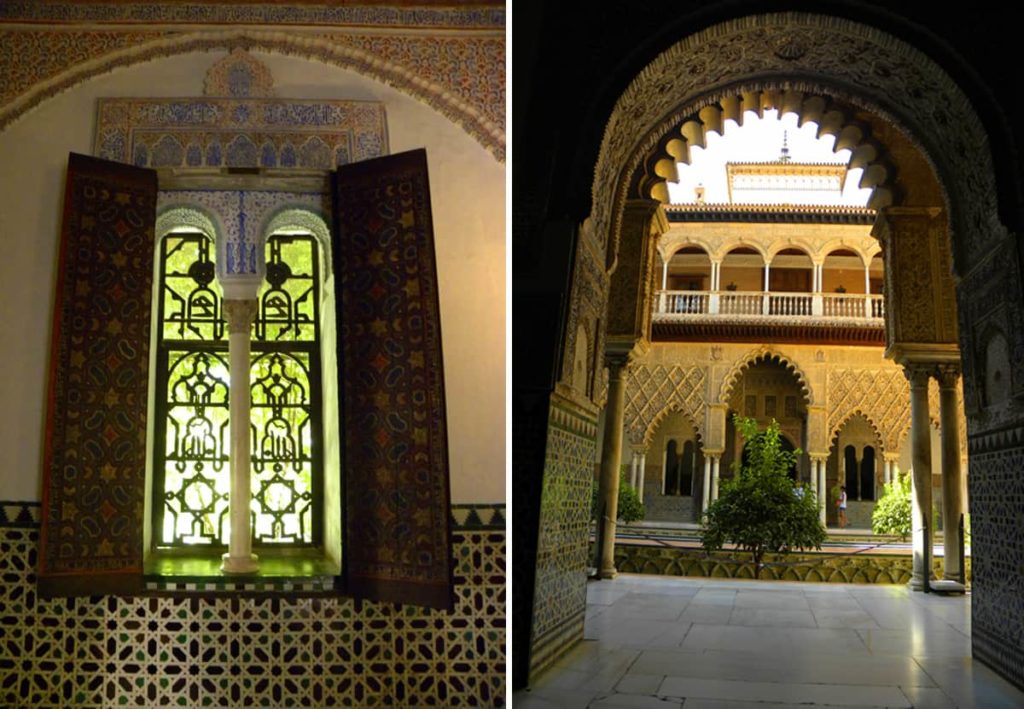
The Ambassador’s Hall
A stunning hall where the most prestigious guests of the Caliphs were received. It was built during the reign of Al-Mu’tamid in the 11th century and then remodelled in the 14th century by Christian king Pedro I of Castile to make the hall the centerpiece of his royal palace.
The ceiling, a glittering wood dome gilded by gold and hundreds of tiny mirrors, is incredible. The Hall, open on all sides with beautifully carved arches and embedded with lacework detail, is stunning.
You’ll see a lot of beauty in the Real Alcazar – but I don’t know if anything matches the Ambassador’s Hall. It is mind-blowing and is the absolute highlight of the complex.
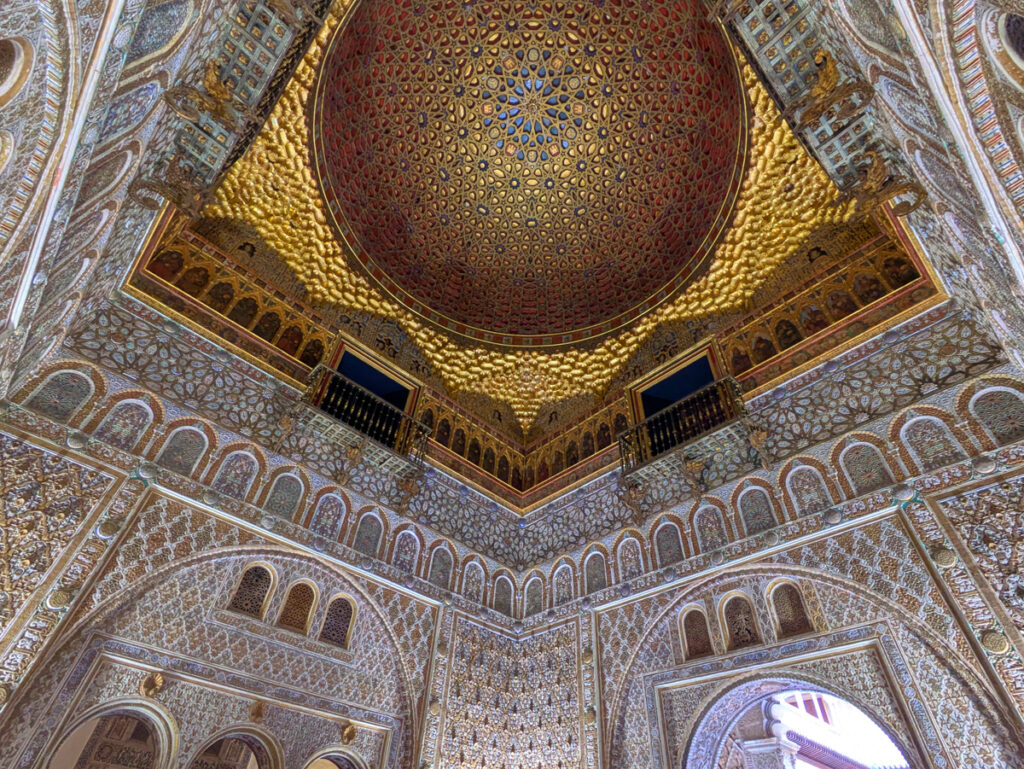
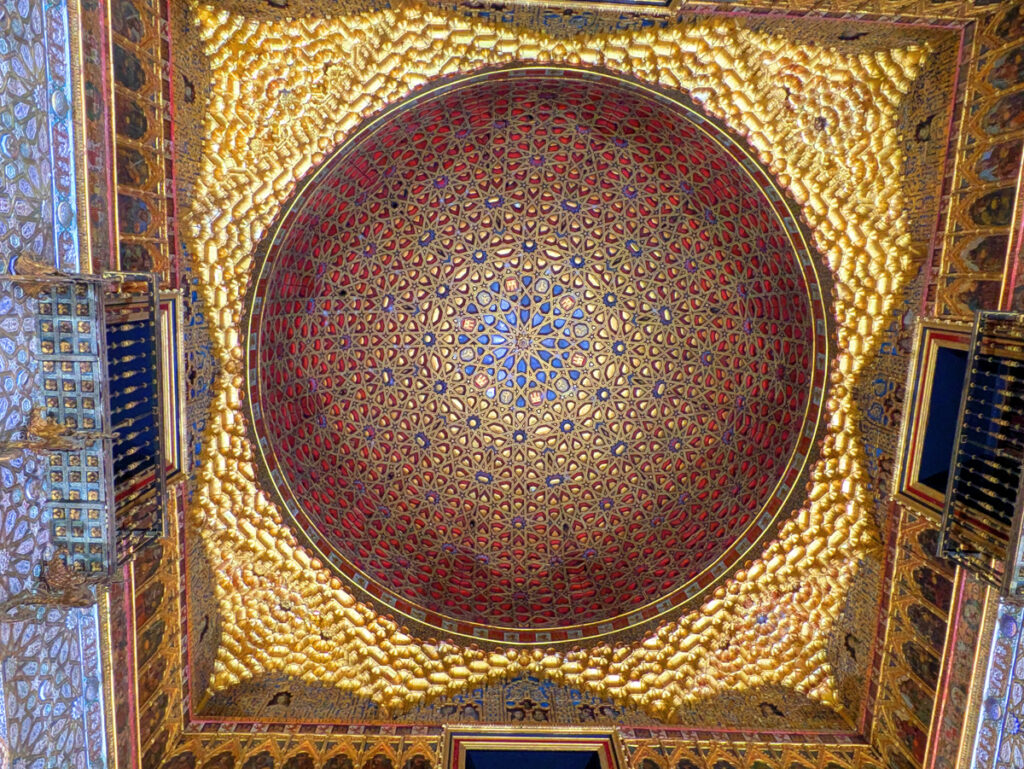
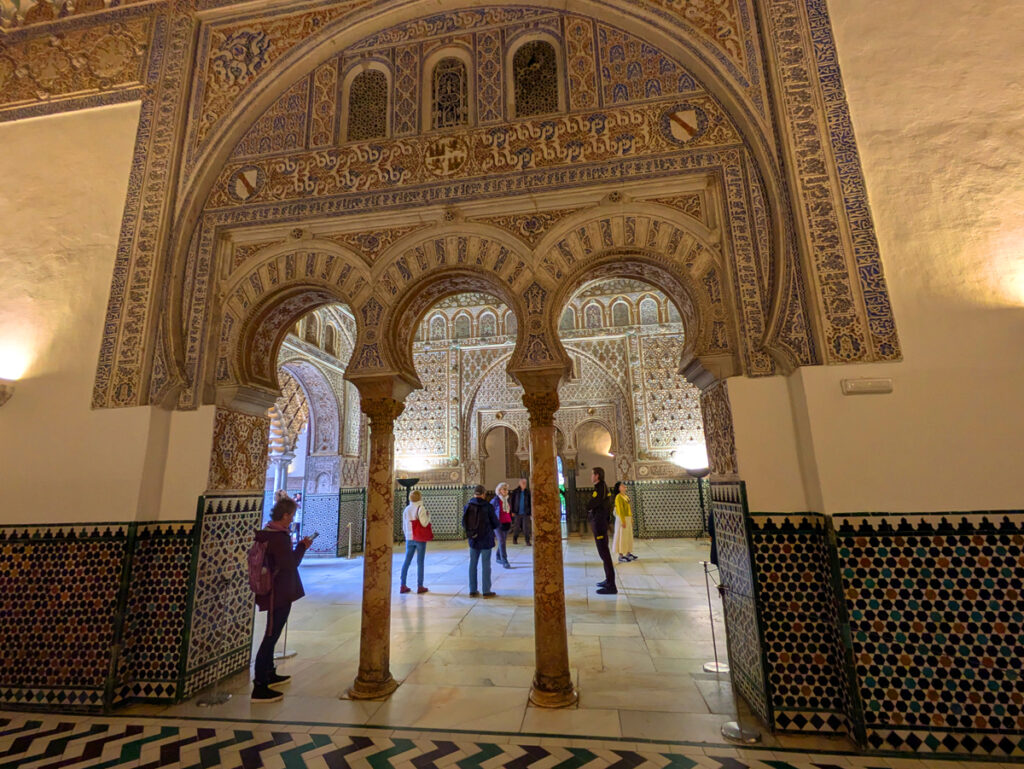
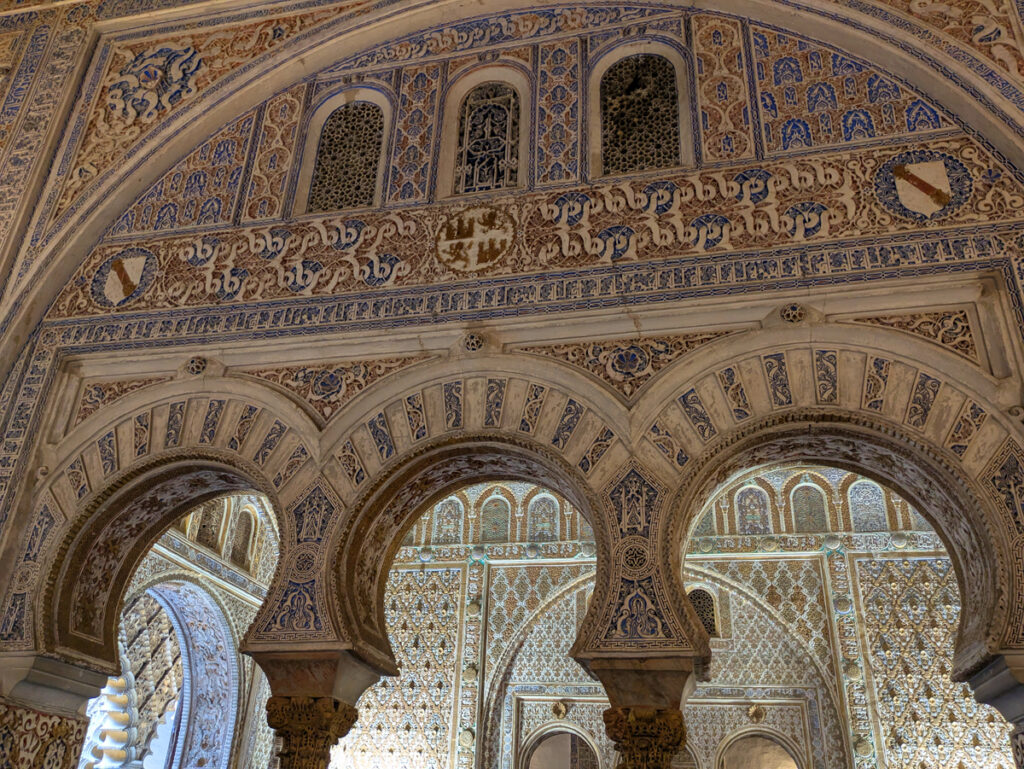
Courtyard of the Dolls
Much smaller than the Maiden’s Courtyard is this exquisite courtyard with delicate decorations and columns dating from the time of the Caliphs. The courtyard was a private area of the palace with living quarters, bedrooms, and other features of the daily life of the palace.
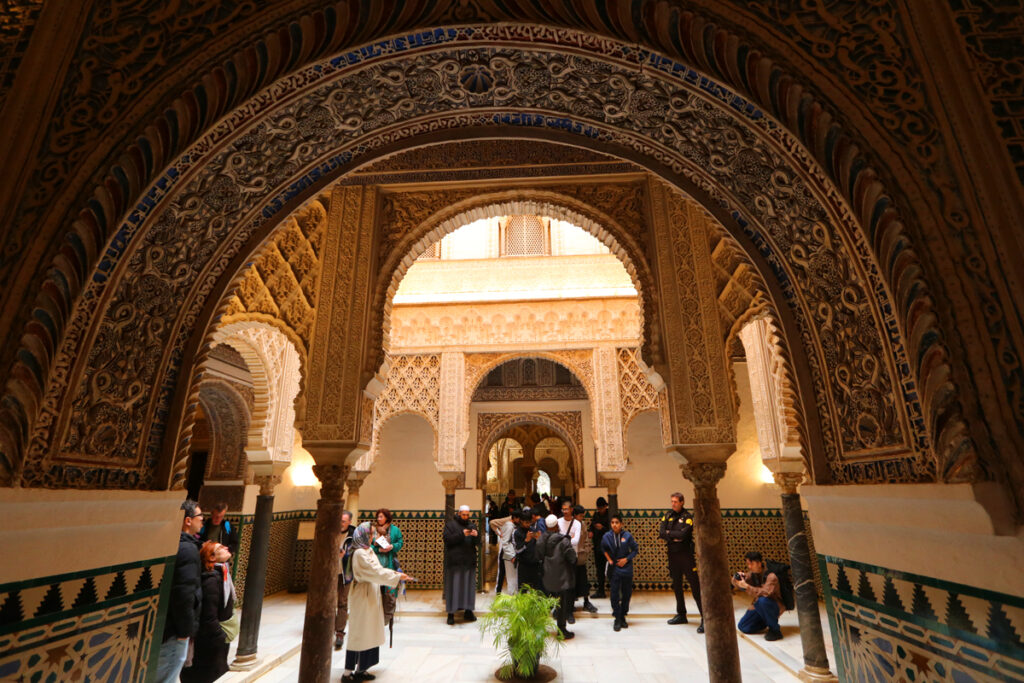
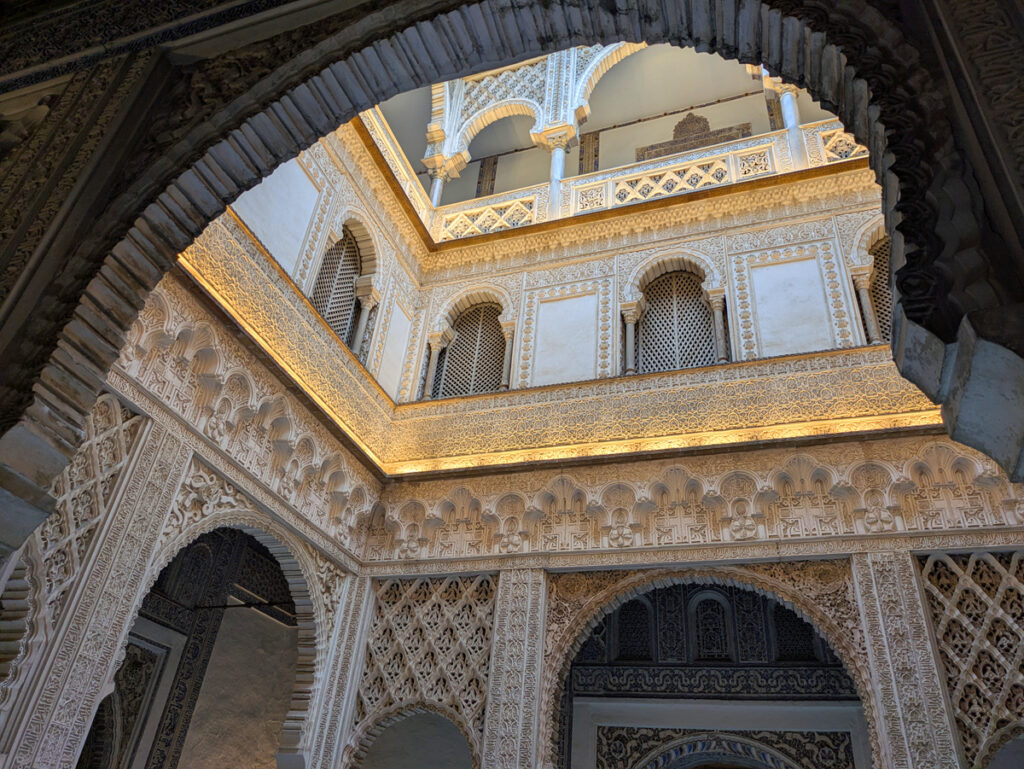
Azulejos and art in the Real Alcazar
Azulejos (tiles) are a highlight of the Real Alcazar, you’ll see them in all the rooms, courtyards and corridors. You’ll also find marble, Arabic inscriptions, intricately carved arches and incredible ceilings.
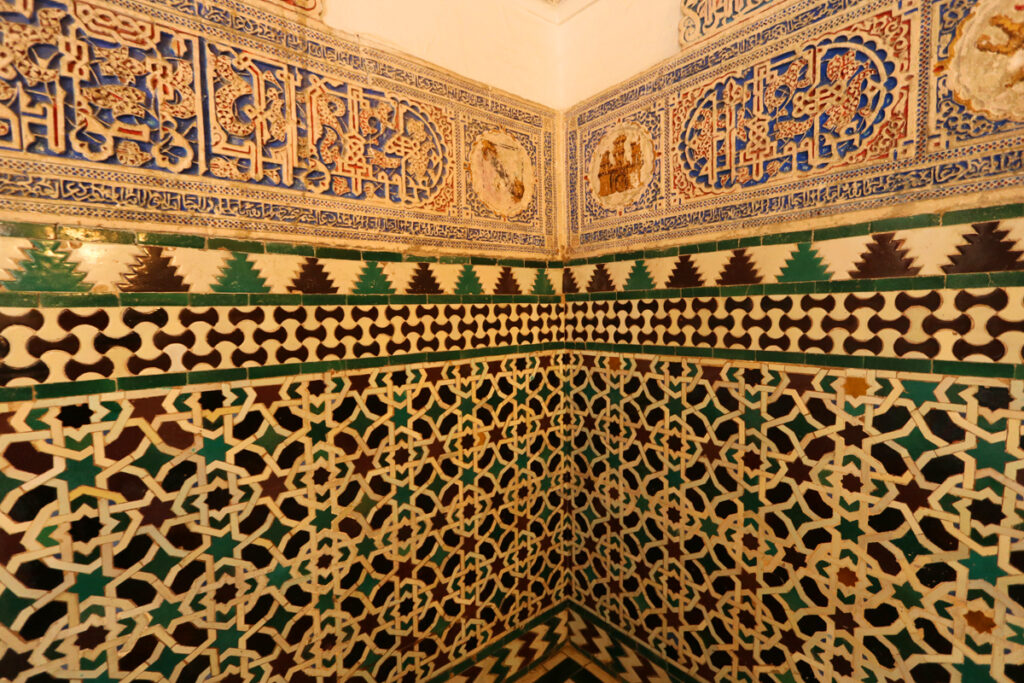
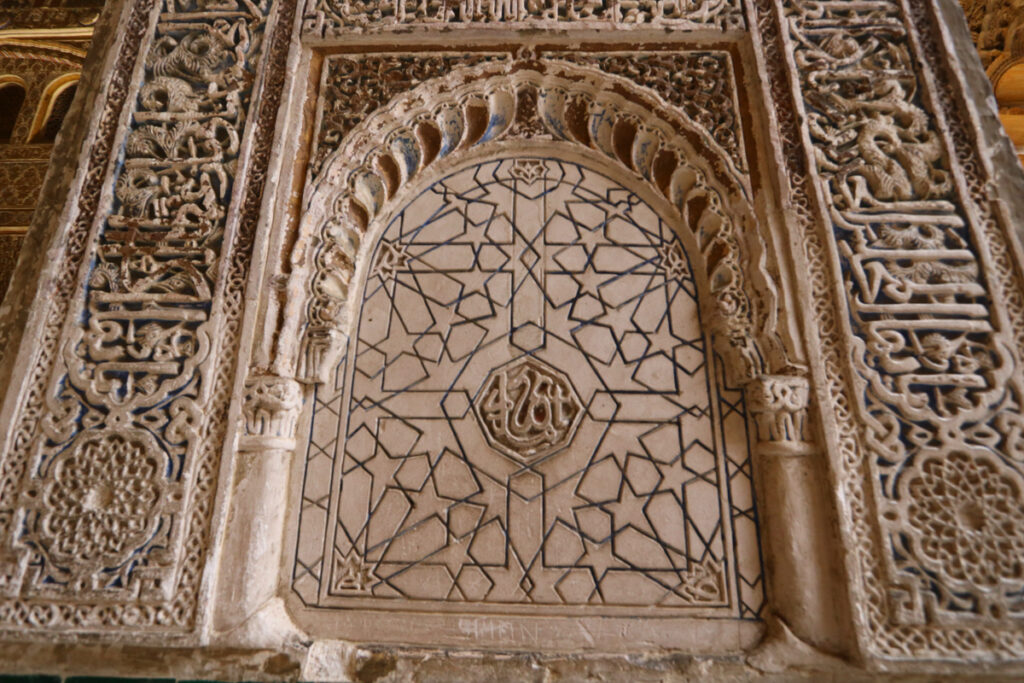
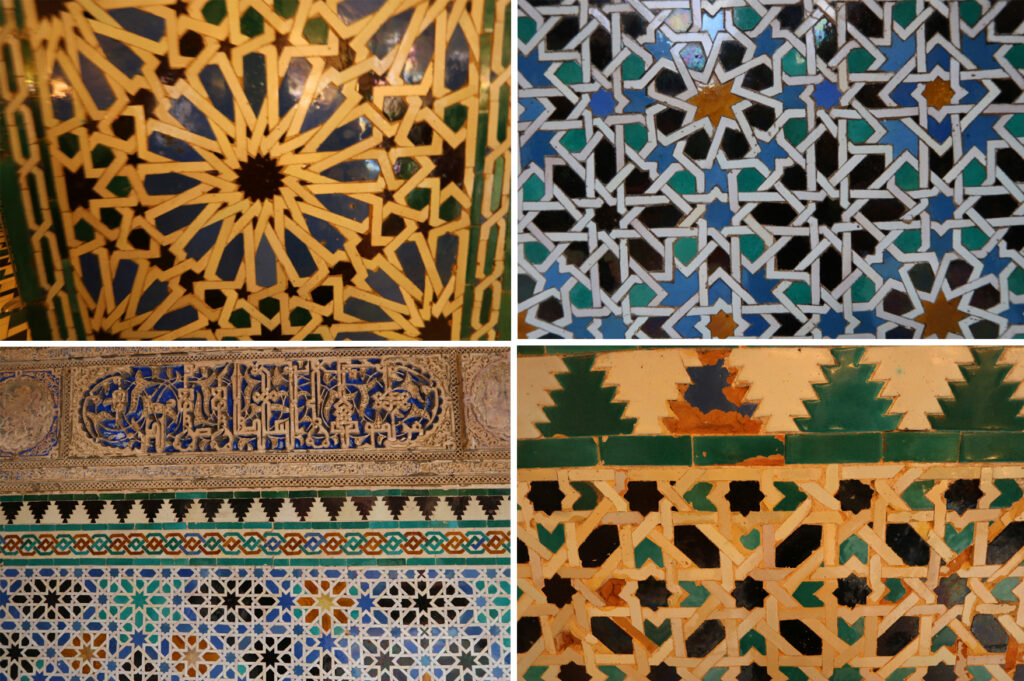
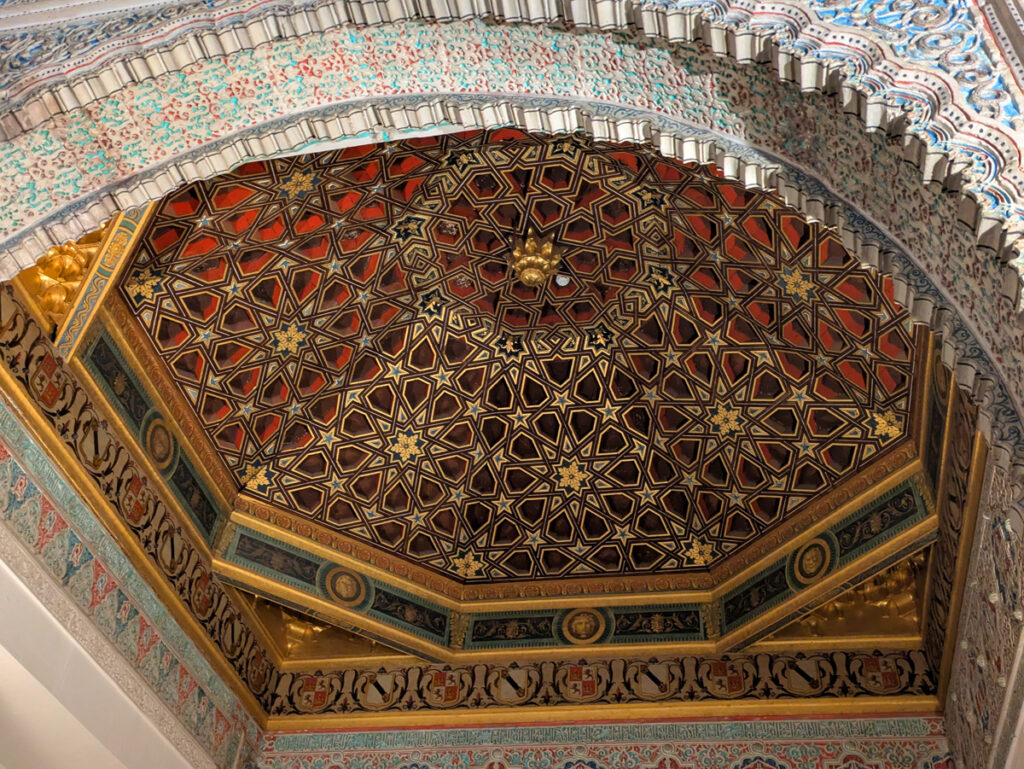
The Gardens
The Alcazar has vast (60,000 square meters!) gardens with pools, fountains, water basins, and tiled benches. It has trees, shrubs, and flowers of many types and origins. Some were planted from seeds brought back from South America by explorers.
Mercury’s Pool is the first garden you’ll see entering the gardens. It is a large pool and fountain decorated by frescos and stonework and filled with fish. It is also a cistern which supplied the palace with water brought from the nearby town of Carmona. Behind the pool you’ll find the Italian grotto gallery which was constructed using volcanic rocks so that it would look like caves.
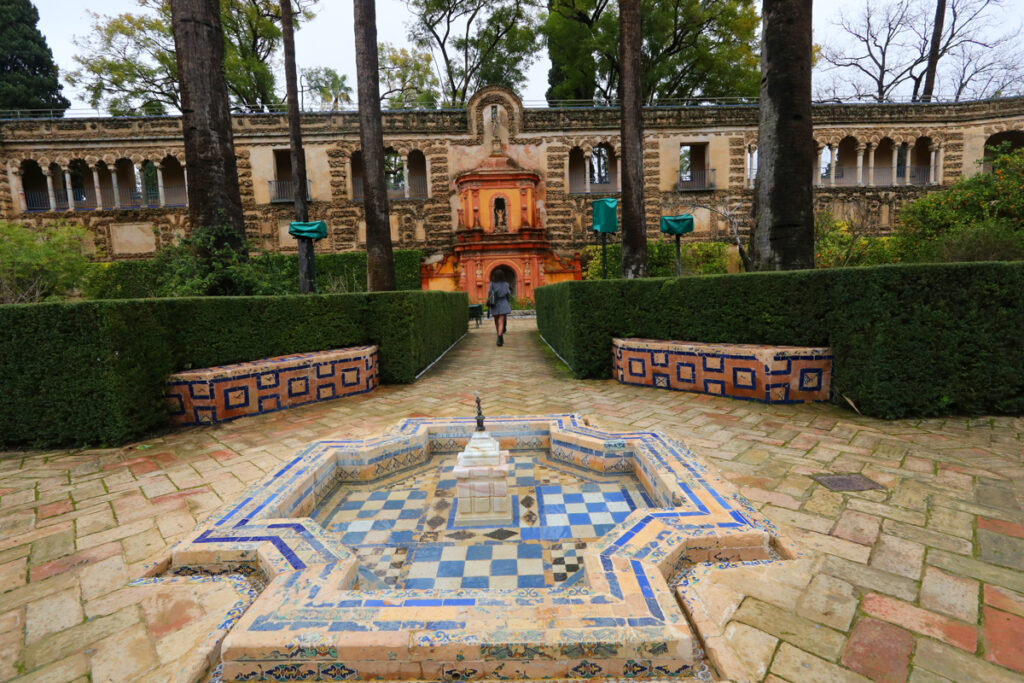
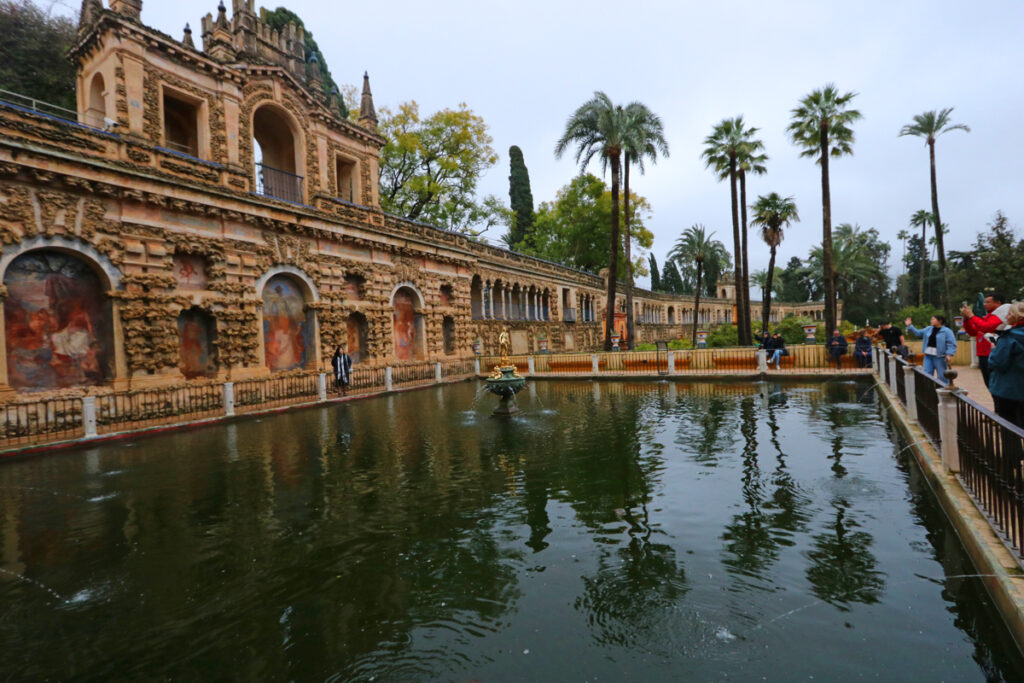
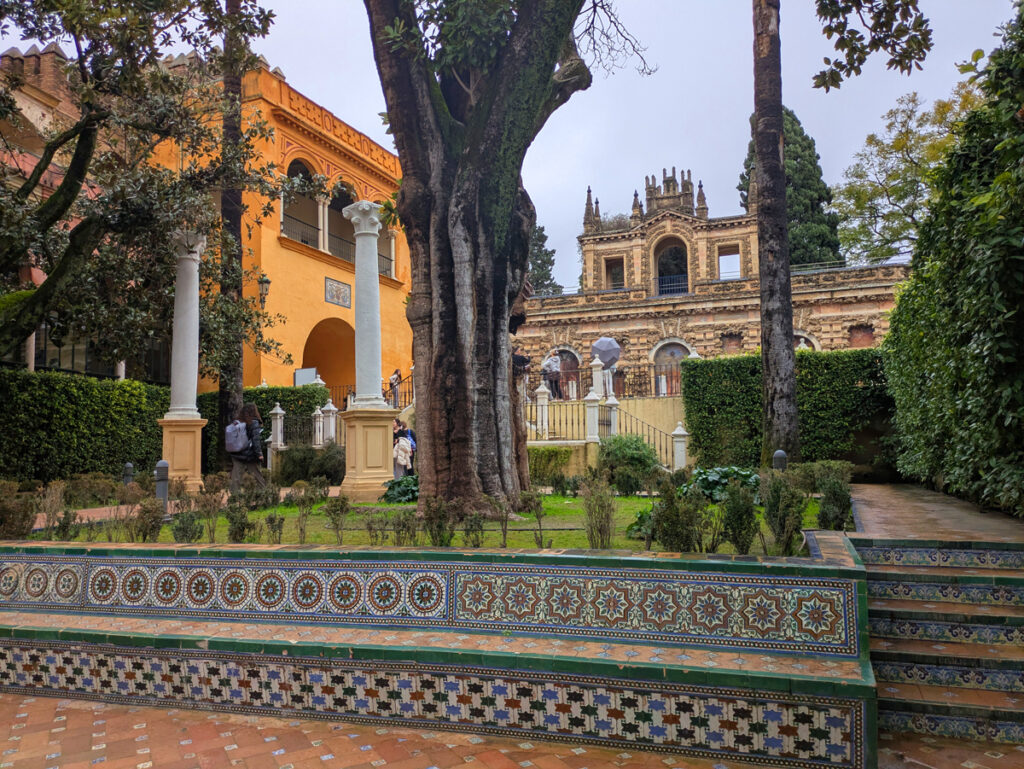
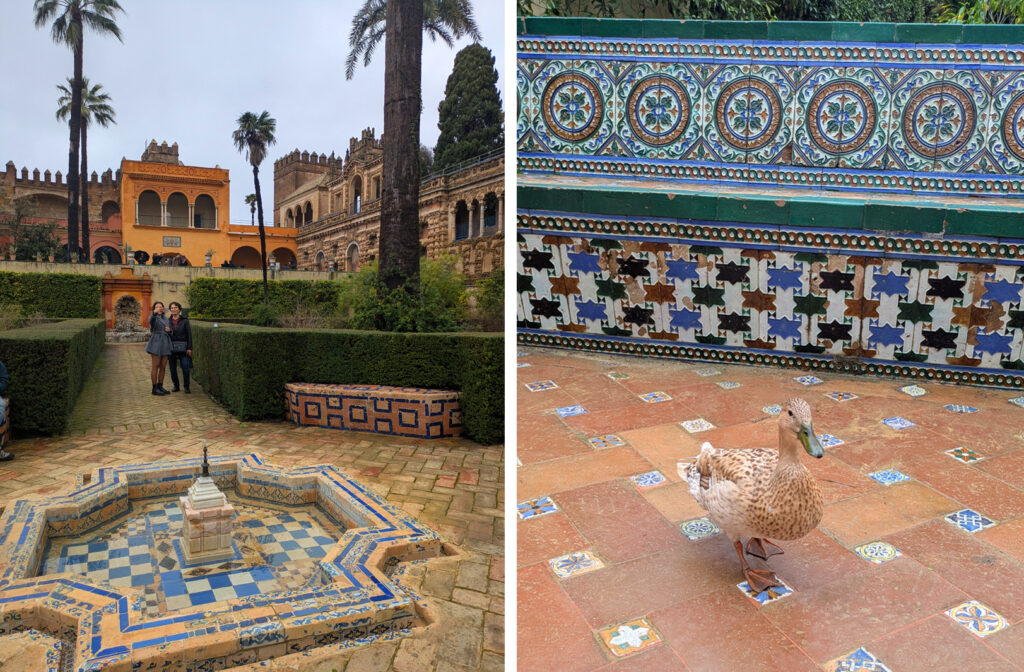
Los Baños de Doña María de Padilla
The rainwater tanks beneath the Patio del Crucero are named after María de Padilla, the mistress of Peter the Cruel. She would come down here to bathe, it was a reprieve on a hot summer day (with temperatures about 15C lower to those outside). At the time, the women who came down here were considered prostitutes and the men homosexuals. Today the underground baths are very popular with tourists.
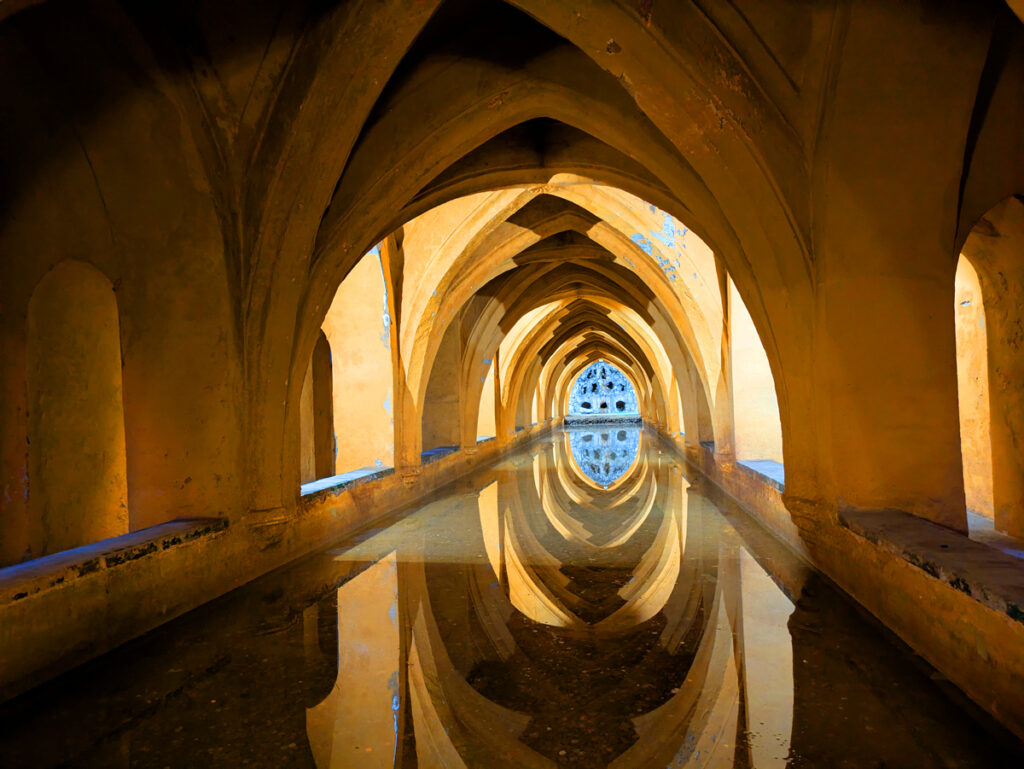
Practical Information on visiting the Real Alcazar
Hours: 9:30 am to 6 pm everyday in winter, 9:30 am to 7 pm everyday in summer.
Save Money: in the summer, there is FREE admittance on Mondays between 6pm -7pm. In the winter Mondays between 4pm-6pm are free. See here to book.
If you’d like to take a tour this one is recommended: Alcazar Guided Tour with Priority Entrance
Hotel Recommendations in Seville
Hotel Fernando III (spiffy hotel with pool, great location, nice views. Good value). Hotel Alminar (superb hotel with fantastic location). Budget options: Hotel Goya (nice little place, great location. Fantastic value for money) and For You Hostel Sevilla (one of the nicest laid out hostels you’ll find anywhere. Really superb).
Related: Seeing the highlights of Seville- and saving money!
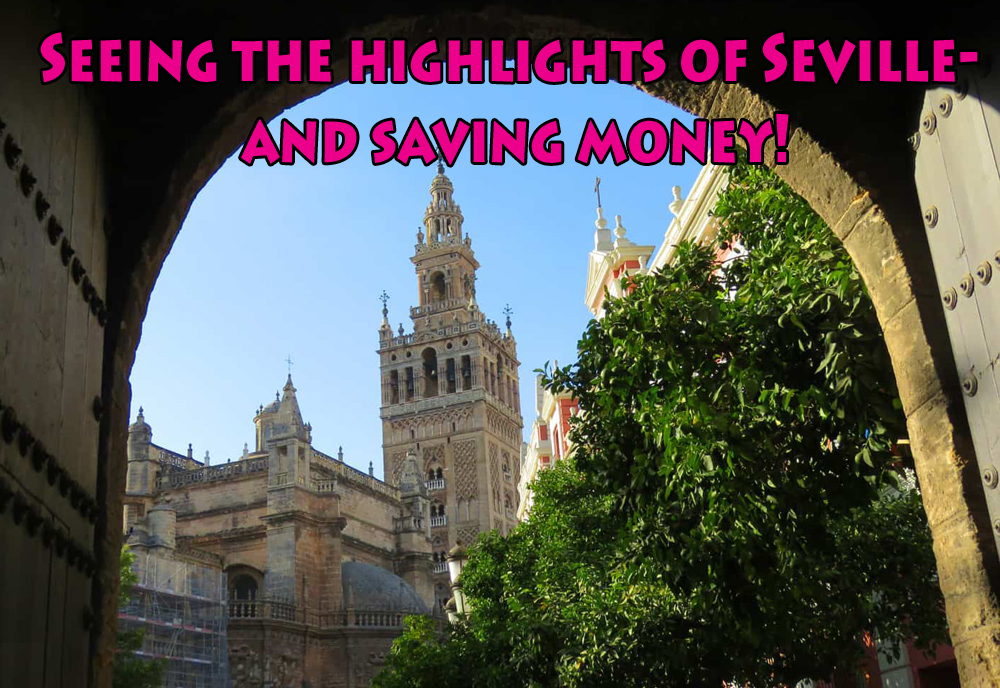
Related: A Travel Agent’s guide to the Best of Spain


Leave a Reply